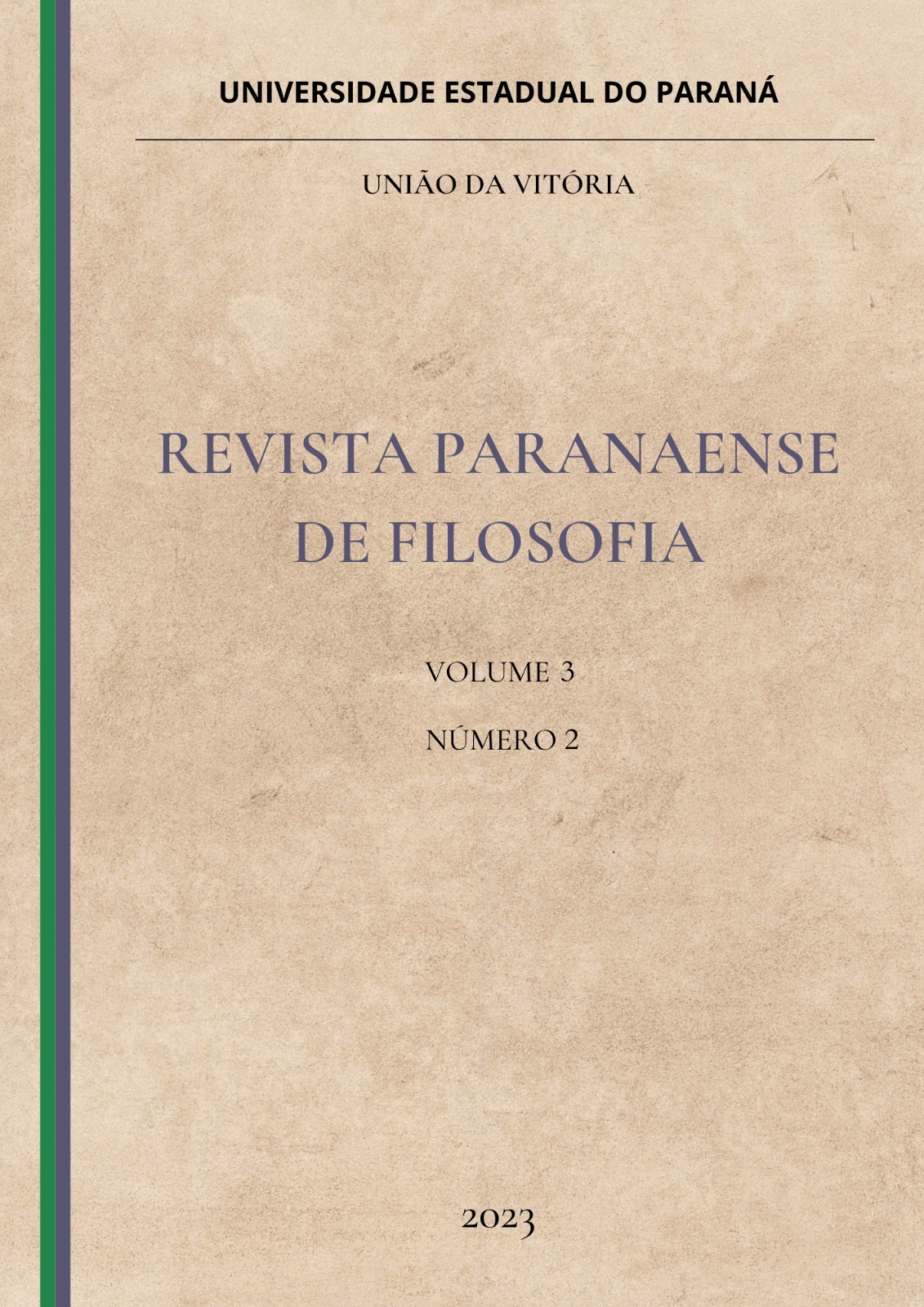OS EXPERIMENTOS DE PENSAMENTO COMO RECURSO METODOLÓGICO PARA UMA ONTOLOGIA E UMA EPISTEMOLOGIA
DOI:
https://doi.org/10.33871/27639657.2023.3.2.8315Keywords:
Taxonimia, Experimento de pensamento, ConhecimentoAbstract
The purpose of this article is to examine thought experiments as an ontological and/or epistemic methodology. Considering the taxonomy carried out by Rorbert Brown, we believe it is possible to outline the importance of this type of experiment. This classification describes two general types of thought experiments, namely: constructive; and destructive. The first refers to an attempt to promote a refutation of a theory. The second aims to corroborate a thesis, facilitating its understanding. However, the criticisms made against this taxonomy will be noted. By establishing an understanding of the general characteristics of thought experiments, we will verify their applicability carried out by two great names in the approach to the mind: initially, we will examine the Chinese room argument built by John Searle; Next, we will address the zombie world thesis put forward by David Chalmers. We will also examine the apologia set up by Daniel Dennett that describes thought experiments as intuition bombs. Apparently, thought experiments play a fundamental role in the production of knowledge.
Downloads
References
ABBAGNANO, N. Dicionário de filosofia. São Paulo: Martins Fontes, 2000.
BROWN, J. R. The laboratory of the mind: Thought Experiments in the natural sciences. London: Routledge, 1991.
CHALMERS, D. J. The Conscious Mind: In Search of a Fundamental Theory. New York: Oxford University. Press, 1996.
CHURCHLAND, P. M. Matéria e Consciência: uma introdução contemporânea à filosofia da mente. Trad. de Maria Clara Cescato. São Paulo: UNESP Ed., 2004.
COOPER, R. Thought Experiments. Metaphilosophy, v. 36, n. 3, p. 328-347, abr. 2005.
DENNETT, D. Brainstorms: ensaios filosóficos sobre a mente e a psicologia. Trad. Luiz Henrique de A. Dutra. São Paulo: UNESP Ed., 2006.
_______. Consciousness Explained. Boston: Little, Brown and Company, 1991.
_______. Intuition pumps and other tools for thinking. New York. W.W. Norton &Company. 2012.
NORTON, J. Are Thought Experiments Just What You Thought? Canadian Journal of Philosophy. 1996. p. 333–66.
SEARLE, J. O mistério da consciência e discussões com Daniel C. Dennett e David J. Chalmers, tradução de Andre Yuji Pinheiro Uema e Vladimir Safatle - São Paulo: Paz e Terra, 1998.
_______. A Redescoberta da Mente. Trad. de Eduardo Pereira Ferreira. São Paulo: Martins Fontes, 2006.
TEIXEIRA, J. F. A teoria da consciência de David Chalmers. Psicologia USP, São Paulo, v.8, n.2, p.109-128, 1997.
TRIPICCHIO, A.; A. C. Teorias da Mente. São Paulo, Tecmedd. 2004.
Downloads
Published
How to Cite
Issue
Section
License
Copyright (c) 2023 Revista Paranaense de Filosofia

This work is licensed under a Creative Commons Attribution 4.0 International License.
Artigo publicado em acesso aberto sob a licença Creative Commons Attribuition 4.0 International Licence.
Os autores cedem o direito exclusivo de primeira publicação à Revista, sendo o trabalho licenciado simultaneamente sob a licença Creative Commons Attribution 4.0 International (CC BY). Esta licença permite que terceiros remixem, adaptem e criem a partir do trabalho publicado, atribuindo o devido crédito de autoria e publicação inicial neste periódico. Os autores têm autorização para assumir contratos adicionais separadamente, para distribuição não exclusiva da versão do trabalho publicada neste periódico (por exemplo: publicar em repositório institucional, em site pessoal, publicar uma tradução ou como capítulo de livro), com reconhecimento de autoria e publicação inicial neste periódico.



